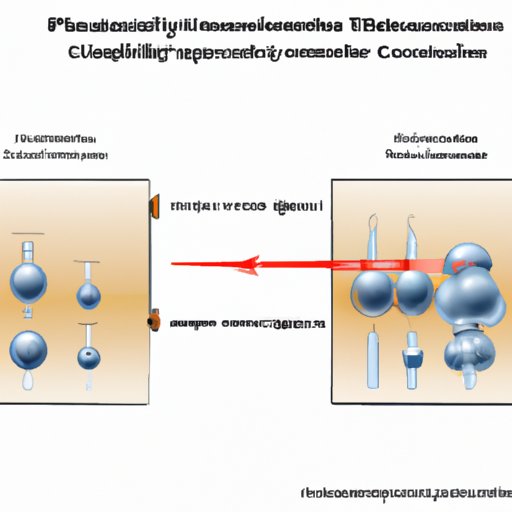
Exploring Physical Chemistry: Fundamentals, Applications, and Future Directions
Physical chemistry is a field of study that explores the fundamental principles and laws governing the behavior of matter at its most basic level. Physical chemistry is especially vital as it provides a theoretical foundation for other fields of chemistry, allowing us to understand the properties of matter and energy and how they interact. This article will explore the basics of physical chemistry, how it compares to other subfields of chemistry, and its real-world applications.
Fundamentals of Physical Chemistry
Physical chemistry can be defined as the branch of chemistry that deals with the study of the physical properties and behavior of matter. It involves the application of concepts from physics, such as thermodynamics and quantum mechanics, to the study of chemical systems. Physical chemists aim to understand the fundamental principles underlying chemical phenomena, including the study of atomic and molecular interactions, surface phenomena, and the behavior of complex systems.
The fundamental principles that underlie physical chemistry include thermodynamics, kinetics, and quantum mechanics. Thermodynamics is the study of how energy is transferred between different states of matter and the work done in moving from one state to another. Kinetics is the study of the rates of reactions and how they are affected by temperature, pressure, and catalysts. Quantum mechanics is the study of the behavior of particles at the atomic and subatomic levels, including the interaction of atoms and molecules with light.
Physical chemistry is connected to other fields of chemistry, such as organic, inorganic, and analytical chemistry. Organic chemistry involves the study of the chemistry of carbon-containing compounds, whereas inorganic chemistry covers the chemistry of other elements. Analytical chemistry focuses on the development of methods and tools for the quantitative and qualitative analysis of matter. Physical chemistry provides a theoretical foundation for these fields, and the concepts and principles from physical chemistry serve as a link between the different branches of chemistry.
Comparison with Other Subfields
Physical chemistry differs from other subfields in chemistry in that it focuses on the fundamental principles underlying chemical behavior. Organic chemistry, for example, focuses on the study of carbon-containing compounds and their synthesis, reactions, and properties. Inorganic chemistry, on the other hand, focuses on the study of the other elements in the periodic table and their properties and uses. Analytical chemistry is concerned with the development of methods and tools for the quantitative and qualitative analysis of matter.
While these subfields of chemistry have different focuses, they all rely on the principles of physical chemistry to explain the behaviors of chemicals. Physical chemists provide a theoretical framework for the study of chemical systems and investigate the properties of molecules and atoms and the fundamental principles governing chemical behavior.
Overarching Themes in Physical Chemistry
The core themes in physical chemistry focus on energy transfer, thermodynamics, and quantum mechanics. Energy transfer involves the transfer of energy between different states of matter, such as the energy required to break a bond or to raise the temperature of a substance. Thermodynamics studies the work done in moving from one state of matter to another, including the heat, energy, and entropy change that occurs.
Quantum mechanics involves the study of the behavior of particles at the atomic and subatomic levels, including how they interact with light and other substances at the atomic scale. An understanding of these key themes and concepts is essential to the study of physical chemistry, laying the groundwork for the study of more complex chemical systems and the development of theories and models to predict their behaviors.
Applications of Physical Chemistry
Physical chemistry has many real-world applications, including in materials science, drug design, and biochemistry. Materials science uses the principles of physical chemistry to study the properties of materials and to design new materials with specific properties. For example, the development of new polymers with specific chemical and physical properties has revolutionized industries such as plastics, textiles, and construction.
Drug design also relies on the principles of physical chemistry, particularly in understanding the interactions between drugs and the proteins and enzymes they target. Physical chemists can use this understanding to develop new drugs and to improve the efficacy and safety of existing drugs.
In biochemistry, physical chemistry provides vital insights into fundamental biological processes such as the reaction kinetics of enzymes and the structure of proteins. This fundamentally impacts our understanding of biological systems and the development of new technologies such as synthetic biology.
Current Research Areas
Current research in physical chemistry focuses on emerging subfields such as biophysical chemistry, computational chemistry, and nanochemistry. Biophysical chemistry seeks to understand the physical principles underlying biological systems and processes, providing new insights into the essential processes of life. Computational chemistry involves using computer simulations and models to predict chemical behaviors, enabling scientists to create new materials and chemicals without the need for expensive experimental testing.
Nanotechnology is another area of research that has become increasingly important to both chemistry and material science. The ability to manipulate and control molecular structures at the nanoscale can have far-reaching applications in industries such as electronics, biotechnology, and medicine.
Conclusion
Physical chemistry is an essential field of study that provides a theoretical foundation for other branches of chemistry and has far-reaching applications across industries. Understanding the fundamental properties and interactions of matter at their most basic level enables us to design new chemicals, materials, and technologies with unparalleled precision and accuracy. This article has covered the basics of physical chemistry, its relationship to other subfields of chemistry, and its practical applications in the real world. Physical chemistry will continue to revolutionize industries and push the boundaries of scientific knowledge, driving us towards a better understanding of the fundamental principles that govern the behavior of matter and energy.




